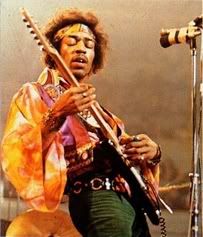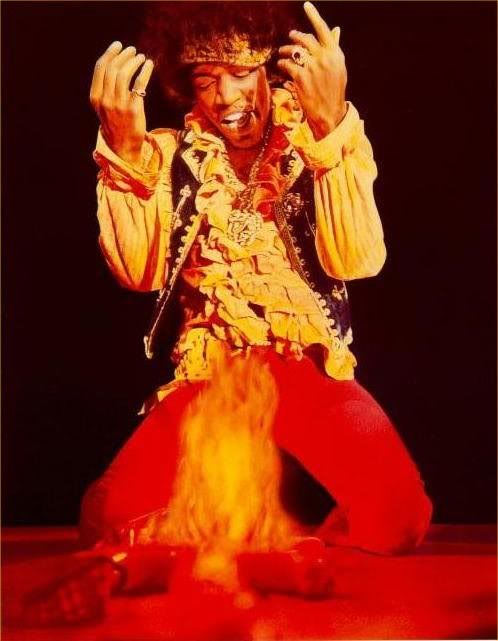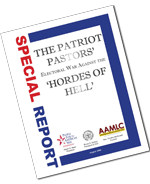
The President’s “Faith-Based and Community Initiatives” have enabled numerous –
“government-funded social service jobs explicitly (to) refuse to hire Jews, gay people, and other undesirables in the name of religious freedom.”
Michelle Goldberg. “Kingdom Coming.” p. 107.
I experienced something similar in an interview from a local pastor for a church job. I was asked questions about my beliefs that were none of his business, and was required to participate in religious activities, despite the fact I was only being hired to play music. I lied because I needed the work…
Gaining prominence, constituents and their elected officials who condone these discriminatory practices of the “Faith-Based Initiatives” have accomplished the following: elected a president, had two amendments be presented to amend the Constitution, and all but hand-selected the newest members of the Supreme Court (the list could go on and on). That is real political power to me.Faith-Based Initiative Programs or its supporters may possibly hire composers and musicians, too.
Composers and musicians who agree with them, of course.
Are there now “right conditions” for a future and possible storm of music censorship? Maybe so or maybe not. One possible scenario based out of factual accounts: since a woman was reported by her neighbor to federal authorities for having an “unpatriotic” poster in her home, would that same woman have been reported to federal authorities for having “unpatriotic” music?
Maybe she would have been for listening to “The Star Spangled Banner” by Jimmy Hendrix.

What’s the difference between an “unpatriotic” poster and an “unpatriotic” song to the censors? Next, she might be strip-searched in full public view the next time she tried to fly, hypothetically speaking.
To view my justification for my “possible scenario”:
Reasonable justification for my possible scenario
(I suggest exploring freemuse
and the ACLU to develop a broader view on these topics).
It greatly disturbed me when I learned years ago that Shostakovich, the composer I admire most lived in fear of his life for composing music that Stalin found “unpatriotic” during my lifetime. He was loved and admired by the citizens of Russia, while Stalin’s regimen attempted to subjugate Shostakovich to their repressive ideology.
“Music illuminates a person and provides him with his last hope; even Stalin, a butcher, knew that.”
So said the Russian composer Dmitri Shostakovich, whose first compositions in the 1920s identified him as an avant-garde wunderkind. But that same singularity became a liability a decade later under the totalitarian rule of Stalin, with his unpredictable grounds for the persecution of artists.
The desire to use force that would result in censorship is more recent than some might be aware of.
DEA Must Not Be Allowed to Chill Speech or Shut Down Electronic Music Events. (9/11/2003)
Is the RAVE Act Just About Ecstasy and Raves?
No. While proponents of the RAVE Act target Ecstasy and raves, the Act allows federal prosecutors to target other events, such as Hip-Hop concerts, hemp festivals – even country music events could be targeted. The law applies to hotel and motel owners, cruise ship operators, stadium owners, landlords, real estate managers, and event promoters. Anyone who throws an event (such as a party or barbecue) in which they know or anticipate that one or more of their guests uses drugs could potentially face a $250,000 fine and up to twenty years in federal prison. In reality, however, the electronic music community faces the greatest immediate threat because the law’s sponsors, and the DEA, have singled out electronic music as a “threat” to young people.
Brief Timeline on Censored Music (ACLU)
And, in Berlin religious fundamentalists succeeded in censoring Mozart in September of last year.
Berlin’s arts world has been shaken to the core today by the news that a Mozart opera is to be postponed indefinitely because it might offend Muslims and provoke attacks by Islamists,
thus endangering the lives of theatre goers, opera singers and stagehands.
Security authorities have warned the Deutsche Oper that its staging of the 1781 opera Idomeneo which is set in ancient Crete, poses a serious safety risk.What a sad state of affairs and what a blow to free speech.
In the `offending’ scene which already caused audience walk-outs mainly amongst Christians when it was premiered almost three years ago, King Idomeneo produces the heads of Poseidon, Jesus, Buddha and the Prophet Mohammed from a bloody sack, and displays them on four chairs.
The Deutsche Oper’s decision to comply with the authorities’ recommendation has been criticised across the worlds of arts and politics as “blackmail” and “censorship”. Some have even compared it to the sort of censorship which Germany has not seen since the Third Reich, while others have called it cowardice.
The director is suing the opera house.
It certainly marks a serious threat to artistic expression and one which merits a serious debate.Is silence really the way to fight the threats we face?
Fundamentalists do abhor free expression that conflicts with their repressive ideologies.

(Used with permission from People For The American Way)
Click for: People For The American Way
Well, I have some bad news for them. True artists have all had a similar moment as this.
Ludwig van Beethoven:
“But little more and I would have put an end to my life. Only art it was that withheld me. Ah, it seemed impossible to leave the world until I had produced all that I felt called upon to produce, and so I endured this wretched existence.”
“The Enjoyment Of Music.” Joseph Machlis. p. 264
Art which frees the mind, uplifts the spirit and speaks truth survives the artist, whether they are suppressed, threatened, or murdered.
Picasso watched closely from his adopted Paris as the Spanish Civil War unfolded, and when German bombers leveled the Basque village of Guernica, the previously apolitical Picasso felt stirred to action. Created at a frenzied pace, his painting Guernica was both homage to his Catalonian homeland and a scathing indictment of bloodshed?
Picasso’s “Guernica” was painted in reaction to the barbarous Nazi bombing of the Basque village in Spain in 1937.
Martin (Beethoven’s Hair) extensively researched the circumstances surrounding the creation of this painting and the attention it has continued to command.
Let the fundamentalist censors who approve of Stalin’s repressive ideology –
Michelle Goldberg, “Kingdom Coming: The Rise of Christian Nationalism” p.160 :
…Constitutional lawyer Edwin Vieira discussed Justice Anthony Kennedy’s majority opinion…which struck down that state’s antisodomy law…Vieira accused Kennedy of relying on “Marxist, Leninist, Satanic principles drawn from foreign law… “What to do about Communist judges in thrall to the Devil? Vieira said, “Here again I draw on the wisdom of Stalin. We’re talking about the greatest political figure of the twentieth century…He had a slogan, and it worked well for him whenever he ran into difficulty. No man, no problem.'”
– try censoring Mozart, Shostakovich, Picasso, Hendrix, and the modern day equivalents in skill or spirit now. They can’t; it’s already too late.

10 comments
Skip to comment form
Author
of Ludwig van Beethoven.
I could have had an easy art career had I signed off on a few National Endowment for the Arts grants and projects. That’s how they handled the rebellious left wing artists for years, refuse to sign, don’t get shown.
Diego Rivera was smart enough to stand up to them. His spirit shows in his work of and for the people.
In addition to the current corralling of religiously oriented musicians the corporate entities did a number on local groups by having them sign contracts that allowed the management groups decide when and where the groups should play. Often limiting them to one show a year.
Here’s a few experiences, not all mine:
1) I apply for the position of director of music at a large Episcopal church. Rector says, we won’t be hiring a woman.
2) A good friend is the music director at a conservative Lutheran church. The church council decided she should not play a piece for organ and tape. No words, but too controversial.
3) in the 1990s, two fine church musicians in the Presbyterian church were terminated from positions they had held for many years. Reason given: we want a “family” man. Both musicians are gay.
One common thread that continually emerges when I read about the illiberal and anti-social behavioral deviance of the political religious right is just how fearful they are are.
Their attempt to leash art is more evidence of the fear they have of their own humanity. In a recent interview in Pitchfork, Steve Earl nicely sums up the relationship between art and humanity:
(emphasis added)
Controlling, censoring and suppressing art is to Christianists in the U.S. — like the Taliban in Afghanistan and fundamentalist oppressors wherever they exert political thought oppression on people — a control mechanism. It controls the sheep’s access to “sustenance,” it controls and denies what it means to be human; and it expresses the fear fundamentalism and religiosity has toward independent and critical expression.
Thank you WR for this diary.